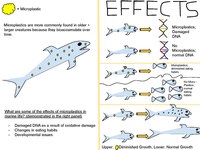
Photo from wikipedia
Abstract Abstract Human toxocariasis is a neglected tropical disease, which is actually global in distribution and has a significant impact on global public health. The infection can lead to several… Click to show full abstract
Abstract Abstract Human toxocariasis is a neglected tropical disease, which is actually global in distribution and has a significant impact on global public health. The infection can lead to several serious conditions in humans, including allergic, ophthalmic and neurological disorders such as epilepsy. It is caused by the common roundworm species Toxocara canis and Toxocara cati, with humans becoming accidentally infected via the ingestion of eggs or larvae. Toxocara eggs are deposited on the ground when infected dogs, cats and foxes defecate, with the eggs contaminating crops, grazing pastures, and subsequently food animals. However, transmission of Toxocara to humans via food consumption has received relatively little attention in the literature. To establish the risks that contaminated food poses to the public, a renewed research focus is required. This review discusses what is currently known about food-borne Toxocara transmission, highlighting the gaps in our understanding that require further attention, and outlining some potential preventative strategies which could be employed to safeguard consumer health.
Journal Title: Parasitology
Year Published: 2021
Link to full text (if available)
Share on Social Media: Sign Up to like & get
recommendations!